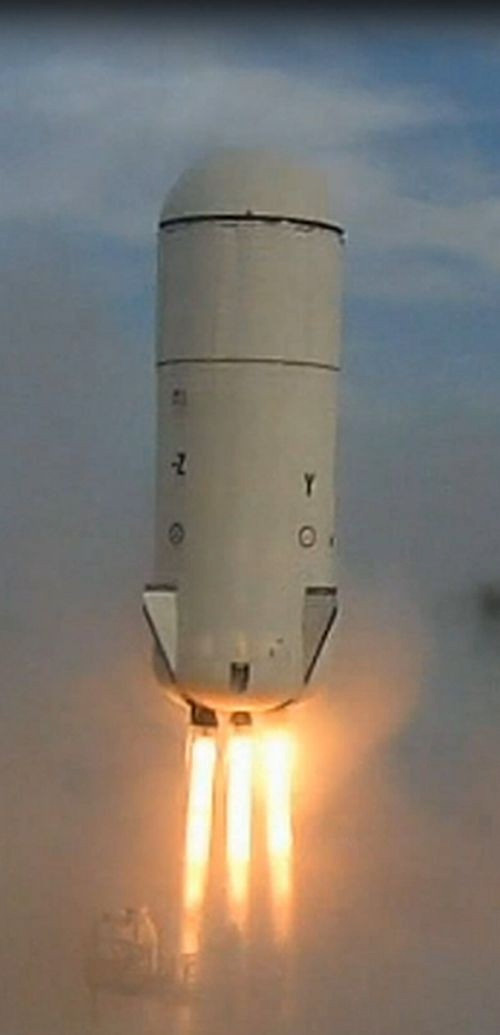Amazon CEO's Rocket Crash: Will Commercial Space Programs Stumble?

As a blow to commercial space programs, an unmanned rocket privately funded by Amazon founder Jeff Bezos crashed during a test flight, said the billionaire CEO on Friday.
The space vehicle went out of control on Aug.24, forcing ground controllers to terminate it as a precaution, according to Bezos.
Three months ago, we successfully flew our second test vehicle in a short hop mission, and then last week we lost the vehicle during a developmental test at Mach 1.2 and an altitude of 45,000 feet, Bezos reported on his company Blue Origin's website.
As the test vehicle reached a speed of 1.2 times the speed of sound, the flight instability happened.
On Aug. 24, the Federal Aviation Administration, which oversees commercial spaceflights, issued a notice to pilots to avoid a 17 nautical mile radius around Van Horn, Texas because of a space operation.
There was no further word about the launch until Friday, when the Wall Street Journal wrote about the spaceship's failure. WSJ said the test did not use federal funds and was not part of the development agreement with NASA.
The exact nature and cause of the failure remain unclear, but remnants of the rocket found on the ground are under investigation by company experts, according to government and industry officials.
A flight instability drove an angle of attack that triggered our range safety system to terminate thrust on the vehicle. Not the outcome any of us wanted, but we're signed up for this to be hard, said Bezos. We're already working on our next development vehicle.
Bezos founded the firm to develop a vertical takeoff and landing rocketship that would fly passengers to suborbital space. It recently won money from NASA to compete to go into orbit as a space taxi now that the space shuttle fleet is retired, according to The Associated Press.
The space startup firm based in Kent, Washington operates a test facility in West Texas.
According to NASA, Blue Origin has received funds to develop a composite crew test module and a launch escape system for its commercial spaceflight vehicle. Blue Origin is developing the New Shepard system, a rocket-propelled vehicle designed to routinely fly multiple astronauts into suborbital space at competitive prices.
Blue Origin's failure can be a stumbling block for the plan of White House for promoting commercially developed spaceship for transporting crews to the international space station by the second half of this decade.
President Barack Obama's administration is championing these missions. The objective is supporting numerous projects such as Blue Origin so that the U.S. will have other options for reaching the orbiting station. This is subsequent to the permanent withdrawal of the NASA's space shuttle fleet.
Recently NASA has dispensed hundreds of millions of dollars as funding for promoting the development of various private rockets and spaceship. This will include more than $25 million set aside for Blue Origin. The intention is that they will be serving as the next generation of regular, cheaper vehicles for going back and forth to the space station.
As for NASA, the mishap has occurred at a crucial time. As of now, lawmakers and the White House are engaged in an ever more unpleasant dispute over federal efforts and funding that should be endowed in commercial space systems.
© Copyright IBTimes 2024. All rights reserved.





















